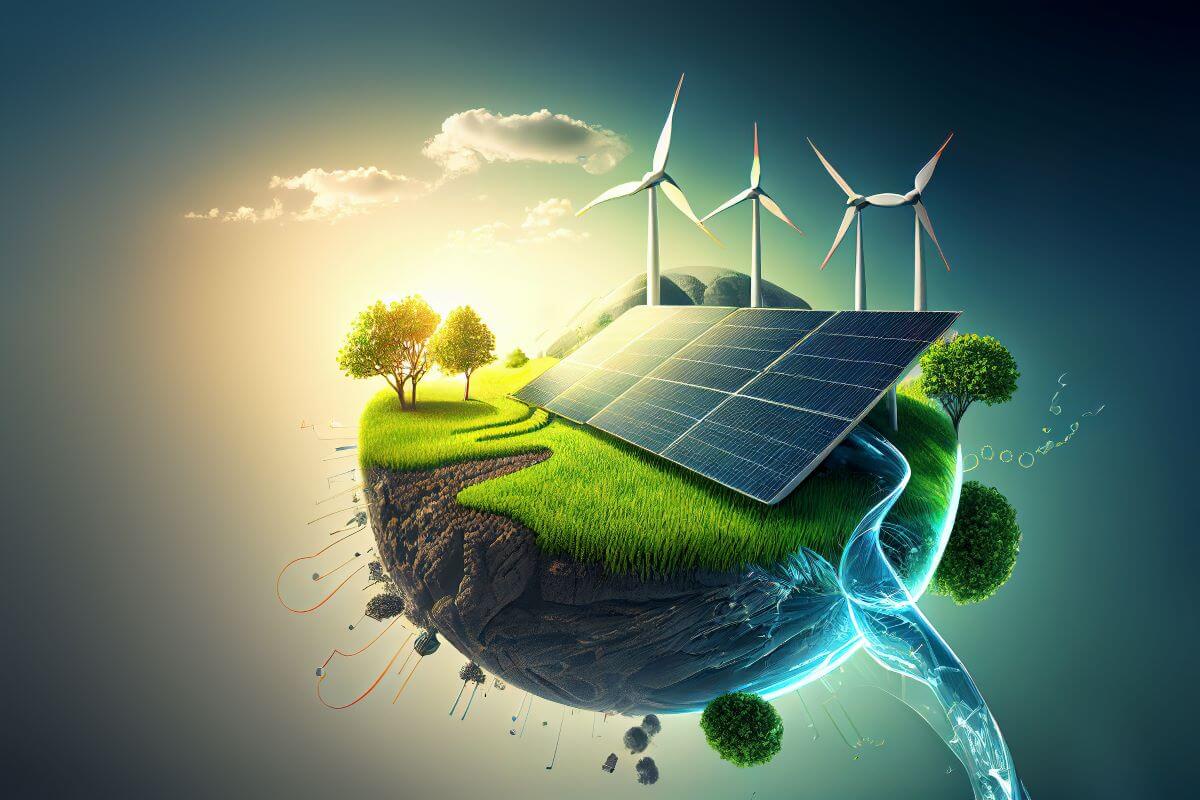In the rapidly evolving landscape of energy consumption, the quest for sustainable and eco-friendly alternatives has become more imperative than ever. As the global community grapples with the challenges of climate change and environmental degradation, the spotlight on renewable energy sources has intensified. In this blog, we will explore the fascinating world of renewable energy, delving into its types, advantages, challenges, and the promising future it holds for our planet.
The Rise of Renewable Energy:
Renewable energy refers to energy derived from naturally occurring sources that are replenished on a human timescale. Unlike conventional fossil fuels, which are finite and contribute significantly to environmental pollution, renewable energy sources offer a cleaner and more sustainable solution to our energy needs. The primary sources of renewable energy include solar, wind, hydro, geothermal, and biomass.
1. Solar Energy:
Solar energy, harnessed from the sun's rays, is one of the most abundant and widely accessible sources of renewable energy. Photovoltaic cells convert sunlight into electricity, powering homes, businesses, and even entire cities. Advances in solar technology have led to increased efficiency and affordability, making it a viable option for widespread adoption.
2. Wind Energy:
Wind energy is generated by harnessing the kinetic energy of moving air using wind turbines. As technology has advanced, wind farms have become a common sight across landscapes, providing a significant contribution to the global energy grid. Offshore wind farms, in particular, have emerged as a promising frontier for capturing powerful and consistent winds.
3. Hydropower:
Hydropower, derived from the energy of flowing water, has been a reliable source for centuries. Dams and hydroelectric power plants convert the potential energy of water into electricity. While environmental concerns related to dams exist, the sustainable development of hydropower is a key aspect of meeting growing energy demands.
4. Geothermal Energy:
Geothermal energy taps into the Earth's internal heat by harnessing steam or hot water from beneath the Earth's surface. This renewable source is utilized for both electricity generation and direct heating applications. Geothermal power plants emit minimal greenhouse gases and have a low environmental impact compared to fossil fuel-based power plants.
5. Biomass:
Biomass energy involves the use of organic materials, such as wood, crop residues, and animal waste, to produce heat or electricity. This renewable source provides an alternative to traditional fossil fuels and contributes to waste management by utilizing organic materials that might otherwise end up in landfills.
Advantages of Embracing Renewable Energy:
-
Environmental Sustainability: The most compelling advantage of renewable energy is its minimal environmental impact. Unlike fossil fuels that release harmful pollutants, renewable sources produce clean energy, contributing to a reduction in air and water pollution and mitigating the effects of climate change.
-
Energy Independence: Relying on renewable energy sources reduces dependence on finite and geopolitically sensitive fossil fuels. This shift towards energy independence enhances national security and resilience.
-
Job Creation and Economic Growth: The renewable energy sector has witnessed significant job growth as technology advances and demand increases. Investment in renewable energy projects stimulates economic growth and creates opportunities for skilled workers in various fields.
-
Cost Competitiveness: Over the years, the cost of renewable energy technologies has decreased significantly. Solar and wind energy, in particular, have become increasingly cost-competitive with traditional energy sources, making them viable options for widespread adoption.
-
Long-Term Viability: Renewable energy sources are, by definition, sustainable in the long term. Unlike fossil fuels, which are finite and subject to price fluctuations, renewable sources offer a stable and consistent energy supply.
Challenges and Future Outlook:
While the benefits of renewable energy are substantial, challenges exist on the path to widespread adoption. Issues such as intermittency (in the case of solar and wind), energy storage, and initial infrastructure costs need to be addressed. Technological advancements, government policies, and global cooperation are pivotal in overcoming these challenges.
The future of renewable energy looks promising, with ongoing research and innovation driving the development of more efficient and cost-effective technologies. Continued investments in renewable energy infrastructure, coupled with supportive government policies, are essential for accelerating the transition towards a sustainable and resilient energy future.
Conclusion:
Renewable energy stands at the forefront of a global shift towards sustainable and environmentally friendly alternatives. As we grapple with the urgent need to address climate change and reduce our carbon footprint, embracing renewable energy is not just an option; it is a necessity. The journey towards a cleaner, greener future is underway, and by harnessing the power of renewable energy, we pave the way for a more sustainable and resilient world for generations to come.
More market research, advisory consulting services to discover
At Eninrac, we offer a wide range of, advisory consulting solutions, from We put ‘search' in research to help expand your business with ease. Discover all the possibilities now.


No comments yet